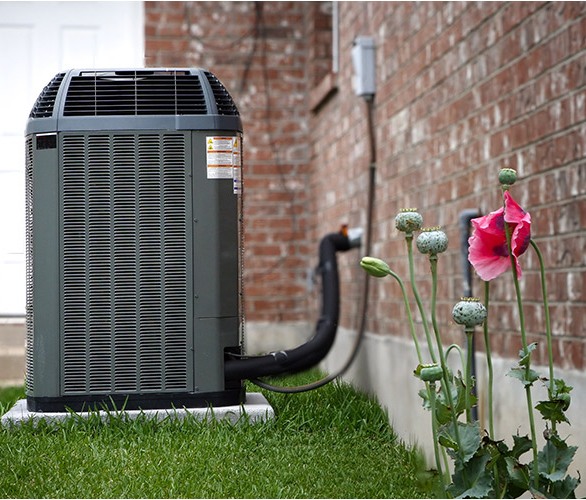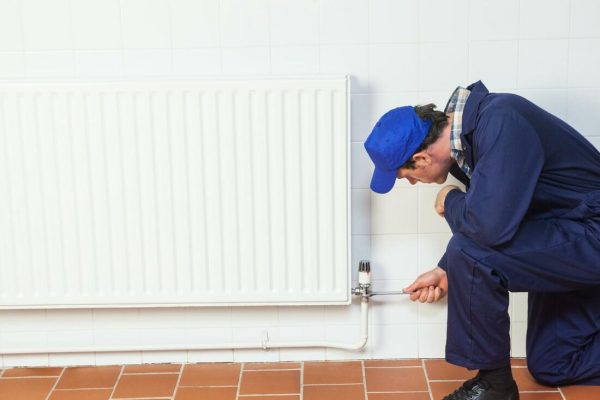Air Conditioning Sound Problems: Recognizing and Repairing the Source


Did you understand that approximately 75% of property owners experience air conditioning sound issues eventually? When your air conditioner starts making odd sounds, it can be quite disruptive to your tranquility and convenience.
From rattling and buzzing to squealing and banging, these sounds can suggest underlying problems that need interest. Identifying the source of the sound is vital for reliable fixings and ensuring your air conditioner operates efficiently.
So, if you're tired of bearing with bothersome AC noises disrupting your peace, there are solutions at hand.
Key Takeaways
- Regular maintenance is vital to address usual air conditioning sound resources like ductwork concerns and damaged electric motors.
- Address vibrating sounds by checking for loose components, preserving follower electric motors, and adding resonance seclusion pads.
- Squealing and banging noises can be fixed by examining belts, fan blades, and compressor coils for concerns.
- Fixing air conditioning sound troubles by carrying out visual evaluations, carrying out soundproofing techniques, and fixing for obstructions.
Common A/c Noise Resources
If your a/c system is making unusual sounds, maybe due to one of several common sources.
One constant perpetrator is issues with the ductwork. Gradually, air ducts can establish leaks, loosened connections, and even blockages. These troubles can trigger air to stream unevenly, causing whistling or rattling noises. An extensive ductwork evaluation by an expert can aid identify and fix these issues, restoring your system's smooth procedure.
One more common source of sound in cooling systems is a malfunctioning electric motor. The motor is an important element that drives the followers and various other moving parts within the system. If the electric motor is worn out or harmed, it can create grinding, screeching, or clunking sounds. In such cases, motor replacement might be necessary to eliminate the source of the disturbance. Regular upkeep and punctual electric motor substitute when required can aid maintain your cooling system running silently and efficiently. https://hammersmithhvac.co.uk/air-conditioning-installation.html
Detecting Rattling and Buzzing Sounds
To deal with rattling and buzzing audios in your cooling system, start by examining the parts that can be causing these sounds, such as loosened parts or worn-out elements. Resonance seclusion is key in solving these concerns. Check for any kind of loosened screws, screws, or panels that might be shaking against each other throughout procedure. Tightening these can typically alleviate the rattling noises.
Furthermore, inspect the fan electric motor for any indicators of deterioration. Regular fan electric motor upkeep, such as lubrication and cleansing, can help reduce humming noises caused by rubbing or breakdown.
If the rattling continues after inspecting and tightening elements, think about adding vibration isolation pads or installs to soak up the excess vibrations. These pads act as a barrier between the shaking components, reducing the noise. Remember that attending to these sounds quickly can stop more damage to your cooling system and guarantee its peak performance.
Attending To Screeching and Banging Noises
When resolving squealing and banging noises in your air conditioning system, begin by identifying the resource of the sounds through a thorough evaluation of the system's components. Inspect the belt stress along with the electric motor bearings, as loose belts or damaged bearings can result in squealing sounds. Inspect the fan blade for any kind of blockages or problems that might trigger banging noises when the follower rotates. In addition, take a look at the compressor coil for any kind of particles or concerns that can be creating the noises.
To deal with squealing noises connected to belt stress, change the stress complying with the producer's standards to see to it it's within the advised array. If the motor bearings are the offender, consider lubricating them when possible; otherwise, they might need to be changed. For banging noises brought on by follower blade issues, repair or change the harmed blades quickly. When it involves the compressor coil, cleaning it extensively can commonly settle any noise-related troubles. By addressing these prospective sources of screeching and banging noises, you can restore your a/c system to its finest working state.
Tips for Fixing Air Conditioning Noise
When confronted with air conditioning noise concerns, begin by conducting a visual evaluation of the device's parts for any visible signs of damages or wear. Search for loose components, damaged belts, or particles that may be creating the noise. If you notice any issues, see to it to tighten up loose components, change harmed components, and clean any debris to see if the noise improves.
To deal with a/c sound problems, take into consideration soundproofing methods to decrease the audio transmission from the unit. Protecting the wall surfaces around the device, mounting soundproofing panels, or putting rubber pads beneath the unit can aid dampen the noise successfully.
Normal maintenance is key to avoid air conditioning sound. Be particular that the unit is clean, oiled, and well-maintained to lessen possible problems. Troubleshooting actions like examining the follower blades and electric motor for any type of blockages can likewise aid identify and take care of sound troubles. For small concerns, do it yourself solutions such as tightening screws or readjusting parts may settle the sound without the need for specialist assistance.
Making Sure Reliable Air Conditioner Procedure
Ensure your air conditioning operates successfully by organizing regular upkeep checks and keeping the unit clean and well-lubricated. Mobile air conditioning repair Ensuring your a/c system functions at its ideal not just minimizes noise yet likewise reduces energy usage. To attain this, carry out sound decrease methods such as placing resonance pads under the system to moisten audio transmission and guaranteeing all parts are firmly tightened. In addition, clean or replace air filters on a regular basis to avoid air flow clogs that can strain the system and boost sound degrees.
Power consumption optimization is important for effective air conditioning procedure. Set your thermostat to an appropriate temperature level to stay clear of straining the system. Utilize ceiling fans to assist circulate awesome air more effectively, permitting you to raise the thermostat a little without sacrificing convenience. Consider installing a programmable thermostat to readjust temperature levels immediately when you're away. By following these techniques, you can keep a comfortable indoor environment while lessening energy expenses and sound levels.
Frequently Asked Questions
Can Cooling Noise Degrees Affect the Top Quality of Indoor Air?
High a/c sound levels can impact interior air high quality by adding to sound pollution, which can influence your wellness.
To address this, think about soundproofing services to decrease the sound from your air conditioning device.
Exists a Connection In Between Air Conditioning Noise and Power Efficiency?
When it concerns air conditioning noise and power performance, there's certainly a correlation.
The loud noises generated by your air conditioning unit can indicate ineffectiveness that bring about increased power usage.
By addressing and lowering the sound pollution, you can improve the total efficiency of your system.
How Can I Reduce Air Conditioning Sound Without Endangering the Cooling Efficiency?
To reduce cooling noise without compromising cooling performance, take into consideration soundproofing services like acoustic insulation.
You can enhance performance by tuning the system for efficiency while moistening unwanted sounds.
Attempt ensuring all components are correctly mounted and maintained, and look for loosened parts that could be causing too much noise.
Exist Any Kind Of Specific Rules or Guidelines Pertaining To Acceptable Sound Levels for Cooling Units?
When it pertains to a/c devices, there specify policies and standards in position to assure conformity with appropriate sound degrees. These criteria help sustain a comfy setting without creating disruptions.
Laws regarding noise degrees for a/c systems differ relying on location, but usually concentrate on reducing sound discharges to a degree that doesn't interfere with daily tasks. It is very important to be mindful of these standards to ensure your system meets the necessary criteria.
What Are Some Long-Term Upkeep Tips to avoid A/c Noise Issues in the Future?
To prevent cooling sound problems long-lasting, make sure you stick to routine upkeep. Clean or change filters, check for loose components, and keep the unit clean.
Consider soundproofing strategies like including insulation around the unit. By remaining on top of upkeep and taking steps to reduce sound, you can enjoy a quieter and much more efficient air conditioning system in the future.
Final thought
Since you have identified the common sources of air conditioning noise and found out exactly how to identify and repair them, you can delight in a quieter and much more effective air conditioning system.
Remember to on a regular basis look for any uncommon sounds and resolve them immediately to stop any kind of additional damage.
By looking after your AC unit, you can ensure it runs smoothly and effectively for many years ahead.
